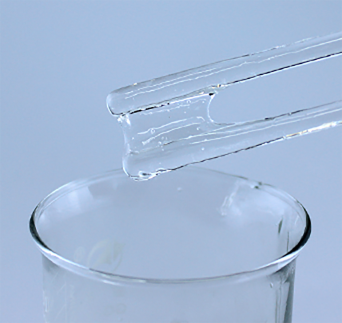
Nov . 12, 2024 02:59 Back to list
hydroxyethylcellulose uses
The Versatile Uses of Hydroxyethylcellulose
Hydroxyethylcellulose (HEC) is a water-soluble polymer derived from cellulose, which is the primary component of plant cell walls. This versatile compound has gained significant traction across various industries due to its unique properties, such as thickening, stabilizing, and gelling abilities. In this article, we will explore the numerous applications of hydroxyethylcellulose, emphasizing its crucial role in sectors like pharmaceuticals, cosmetics, food, and construction.
1. Pharmaceutical Applications
In the pharmaceutical industry, hydroxyethylcellulose serves as a crucial excipient in drug formulation. Its exceptional thickening and gelling properties allow it to be used in the production of gels, creams, and ointments. These formulations benefit from increased viscosity, which not only improves the stability of active ingredients but also enhances the product's overall performance. For example, HEC is often used in topical drug delivery systems, ensuring that medications remain localized and effective when applied to the skin. Additionally, HEC's biocompatibility makes it suitable for use in ophthalmic solutions, where it helps retain moisture and improve the comfort of contact lens wearers.
2. Cosmetic and Personal Care Products
The cosmetic industry has embraced hydroxyethylcellulose for its multifunctional benefits. HEC is widely used in shampoos, conditioners, lotions, and creams. Its ability to thickens formulations contributes to a desirable texture and enhances the overall sensory experience for consumers. Moreover, HEC helps stabilize emulsions, preventing the separation of oil and water phases in cosmetic products. This ensures that the products maintain their intended performance over time. As a film-forming agent, HEC also provides a protective barrier on the skin and hair, locking in moisture and promoting hydration. Consequently, it is a popular choice in formulations aimed at improving skin and hair health.
3. Food Industry Applications
hydroxyethylcellulose uses

Hydroxyethylcellulose is utilized in the food industry as a food additive and thickening agent. It is often incorporated into sauces, dressings, and dairy products to enhance texture and mouthfeel. By improving the viscosity of these items, HEC ensures that they have a consistent and appealing texture, making meals more enjoyable. Additionally, because HEC is a plant-derived ingredient, it is seen as a favorable alternative to synthetic additives, resonating with the growing consumer preference for natural products. Furthermore, HEC can serve as a fat replacer, contributing to reduced calorie content in low-fat or reduced-fat food formulations without sacrificing taste or texture.
4. Construction Industry
The construction industry has discovered the benefits of hydroxyethylcellulose in various applications. It is frequently used to improve the workability and adhesion of cement-based materials such as mortars and grouts. By incorporating HEC into these formulations, manufacturers can enhance the water retention properties, allowing for better hydration of the cement and improved strength. Additionally, HEC helps prevent the segregation of ingredients and reduces the risk of cracking and shrinkage in finished products. Its role as a film-forming agent also contributes to the durability of coatings and paints, ensuring that surfaces are protected from environmental stressors.
5. Environmental Applications
With growing concerns about environmental sustainability, hydroxyethylcellulose has emerged as a promising ingredient in eco-friendly formulations. Its biodegradable nature makes it an attractive option for companies looking to minimize their ecological footprint. HEC is being explored in applications ranging from biodegradable packaging materials to eco-friendly cleaning products. By integrating HEC into these formulations, manufacturers can create products that meet consumer demand for sustainability while still delivering high performance.
Conclusion
In summary, hydroxyethylcellulose is a remarkable compound with a wide range of applications across multiple industries. Its ability to act as a thickener, stabilizer, and gelling agent makes it an indispensable ingredient in pharmaceuticals, cosmetics, food products, construction materials, and even environmentally friendly formulations. As industries continue to innovate and adapt to changing consumer demands, the significance of hydroxyethylcellulose is set to grow, further highlighting its importance in modern applications. With its versatile properties and safe profile, HEC stands out as a valuable component in creating effective and sustainable products for today's market.
-
Versatile Hpmc Uses in Different Industries
NewsJun.19,2025
-
Redispersible Powder's Role in Enhancing Durability of Construction Products
NewsJun.19,2025
-
Hydroxyethyl Cellulose Applications Driving Green Industrial Processes
NewsJun.19,2025
-
Exploring Different Redispersible Polymer Powder
NewsJun.19,2025
-
Choosing the Right Mortar Bonding Agent
NewsJun.19,2025
-
Applications and Significance of China Hpmc in Modern Industries
NewsJun.19,2025







